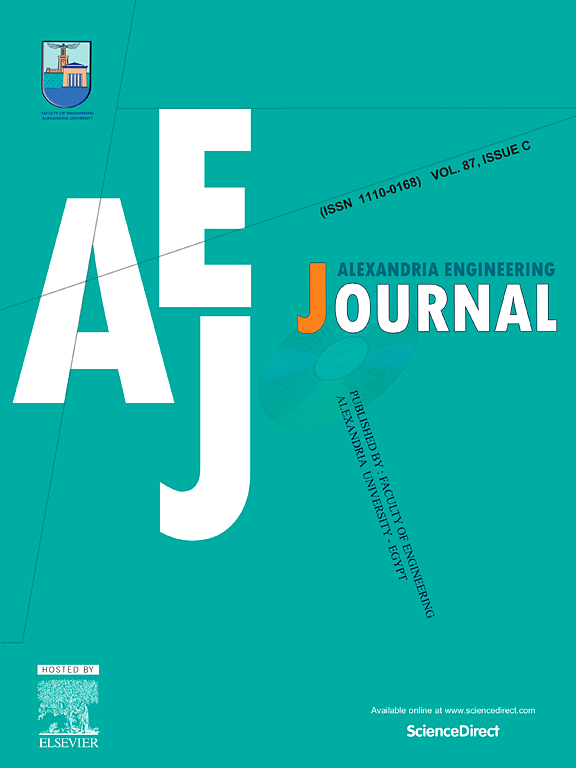Machine learning optimization for vocational literacy education evaluation: A big data-powered decision support system
IF 6.8
2区 工程技术
Q1 ENGINEERING, MULTIDISCIPLINARY
引用次数: 0
Abstract
This paper is motivated by the urgent requirement for creative solutions to address the challenges faced by vocational colleges in China’s rapidly advancing higher education system. It aims to use big data and data mining to improve vocational education and develop students’ professional characteristics. This study developed a comprehensive evaluation system for vocational education by using a decision support system (DSS) and data mining approaches based on big data analysis. The development is carried out in several stages. First, a complete DSS-based evaluation index system is developed by using large-scale data analysis. For this purpose, eight indicators were chosen to test students’ vocational literacy and create DSS and parameter matrices. Secondly, it uses the technique for order of preference by similarity to the ideal solution (TOPSIS) approach to analyze the results for each indicator, offering a solid foundation for decision-making. Thirdly, it uses regression analysis through the logistic regression model to investigate the particular features that impact students’ vocational literacy in vocational schools. Fourthly, the classification analysis is carried out to predict and analyze the vocational literacy level of vocational college students by using support vector machine (SVM), logistic regression, and AdaBoost. According to the assessment findings, 57% of students are judged competent or extremely competent, indicating that the majority have the essential vocational literacy for work. However, a comparison of students’ self-perceptions with enterprise ratings needs to be more consistent. Students tend to rank their vocational literacy better, with ratings around 4.0, whilst enterprise assessments linger around 3.6 points.
面向职业素养教育评价的机器学习优化:大数据驱动的决策支持系统
在中国快速发展的高等教育体系中,迫切需要创造性的解决方案来解决职业院校面临的挑战,这是本文的动力。它旨在利用大数据和数据挖掘来改善职业教育,培养学生的专业特色。本研究利用决策支持系统(DSS)和基于大数据分析的数据挖掘方法,开发了一个职业教育综合评价系统。开发分几个阶段进行。首先,通过大规模数据分析,构建了一个完整的基于决策支持系统的评价指标体系。为此,我们选取了8个指标来测试学生的职业素养,并创建决策支持系统和参数矩阵。其次,采用理想解相似性偏好排序法(TOPSIS)对各指标的结果进行分析,为决策提供了坚实的基础。第三,运用logistic回归模型进行回归分析,探究影响职业学校学生职业素养的具体特征。第四,运用支持向量机(SVM)、logistic回归和AdaBoost进行分类分析,对高职学生职业素养水平进行预测和分析。根据评估结果,57%的学生被认为有能力或非常有能力,这表明大多数学生具有工作所需的基本职业素养。然而,学生的自我认知与企业评分的比较需要更加一致。学生们倾向于给自己的职业素养打分,得分在4.0分左右,而企业素养的评分则徘徊在3.6分左右。
本文章由计算机程序翻译,如有差异,请以英文原文为准。
求助全文
约1分钟内获得全文
求助全文
来源期刊

alexandria engineering journal
Engineering-General Engineering
CiteScore
11.20
自引率
4.40%
发文量
1015
审稿时长
43 days
期刊介绍:
Alexandria Engineering Journal is an international journal devoted to publishing high quality papers in the field of engineering and applied science. Alexandria Engineering Journal is cited in the Engineering Information Services (EIS) and the Chemical Abstracts (CA). The papers published in Alexandria Engineering Journal are grouped into five sections, according to the following classification:
• Mechanical, Production, Marine and Textile Engineering
• Electrical Engineering, Computer Science and Nuclear Engineering
• Civil and Architecture Engineering
• Chemical Engineering and Applied Sciences
• Environmental Engineering
 求助内容:
求助内容: 应助结果提醒方式:
应助结果提醒方式:


